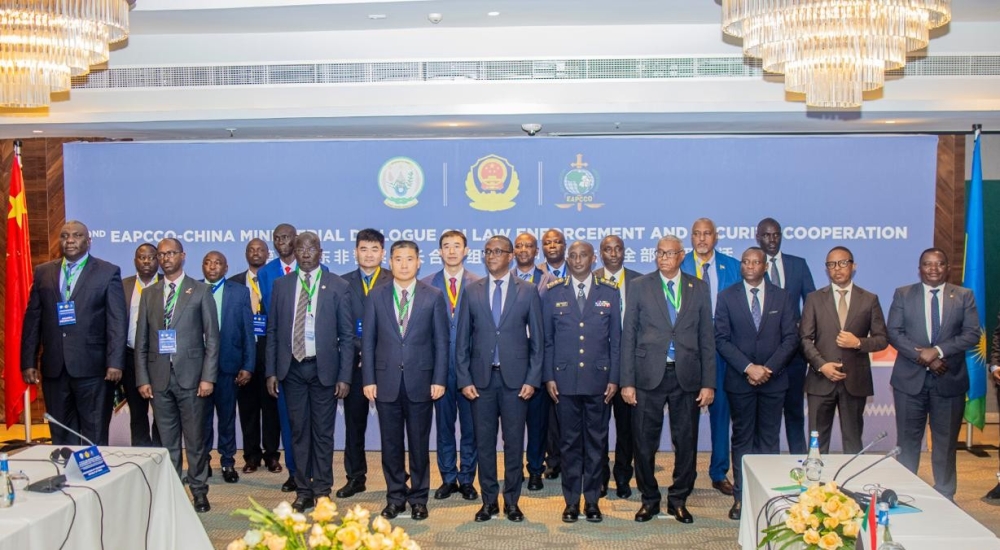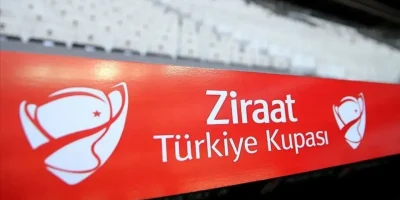The Eastern Africa Police Chiefs Cooperation Organization (EAPCCO) and the Chinese Ministry of Public Security have pledged to strengthen collaboration in law enforcement and information sharing to advance peace and stability across their regions.
ALSO READ: Regional police chiefs commit to strengthen regional security cooperation
The commitment was made in Kigali on Wednesday, November 5, during the second EAPCCO–China ministerial dialogue, attended by representatives from Kenya, Rwanda, Uganda, Burundi, Sudan, and South Sudan, alongside a high-level Chinese delegation led by Vice Minister of Public Security, Xu Datong.
Other EAPCCO member states include DR Congo, Djibouti, Eritrea, Ethiopia, Seychelles, Comoros, Somalia, and Tanzania.
The dialogue followed the inaugural session held in China in September 2024, where both sides signed a Memorandum of Understanding (MoU) to boost cooperation against transnational crime, terrorism, and cyber threats.
ALSO READ: Experts say Africa-China cooperation could reduce tariff risk
Rwanda’s Minister of Interior, Vincent Biruta, commended the continued partnership between the region and China, describing it as one rooted in mutual trust and a shared vision for peace. He also saluted the role played by the African Union Mechanism for Police Cooperation (AFRIPOL).
“This dialogue is an occasion and an opportunity once again offered to us to strengthen cooperation between our region and China,” Biruta said.
The minister said the partnership has already born results through better information sharing, joint operations, and police training that promote professionalism and coordination among member states.
“We hope this dialogue will continue to emphasize the main areas of cooperation, from human rights and police expertise to technical collaboration, joint actions to combat transnational crime, and strengthening police academies to build the capacities of AFRIPOL organs,” he added.
Biruta praised China’s recent AFRIPOL training programmes on cybercrime, organized crime, and phone-related offenses, urging for their expansion to address human trafficking, drug trafficking, migrant smuggling, arms trafficking, and illegal resource trade.
“As criminals adopt changing and sophisticated methods of operation, our police officers must also acquire new professional skills,” he said. “We encourage the continuation of these programmes to ensure our law enforcement remains equipped to meet evolving challenges.”
Vice Minister Xu Datong reaffirmed China’s enduring friendship with Africa, calling it “a relationship that has stood the test of time, spanned mountains and seas, and passed down through generations.”
He said China’s engagement with Eastern Africa aligns with President Xi Jinping’s vision under the Forum on China-Africa Cooperation (FOCAC) Summit, which highlights peace and security as central pillars of modernization.
“China and Africa have always understood, trusted, supported, and helped each other,” Xu said. “Our strategic mutual trust has become stronger, our practical cooperation has deepened, and our consensus on unity and joint pursuit of security continues to grow.”
According to Xu, both sides have already achieved significant progress since the 2024 MoU, including repatriation of suspects, resolution of cross-border kidnapping cases, and rescue of Chinese nationals through coordinated operations.
China has also hosted 18 specialized training sessions for 347 East African officers, offered seven police scholarships, and provided support to enhance forensic science capabilities in the region.
Expanding areas of collaboration
Xu announced fresh commitments, including plans to train 1,000 African law enforcement officers, provide annual police equipment to the EAPCCO chairing country, and send multidisciplinary advisory teams to assist with operational challenges.
“Let us join hands to open new horizons for China–East Africa law enforcement and security cooperation, creating a sound environment for the prosperity and stability of all our nations,” Xu said.
“China is willing to strengthen intelligence exchange, experience sharing, joint case investigations, and coordinated actions with East African countries to fight terrorism, kidnapping, illegal detention, telecom and online fraud, drug trafficking, and other transnational crimes according to the law.”
Both sides reaffirmed the importance of cooperation through multilateral platforms such as the United Nations and INTERPOL, emphasizing collective security as the cornerstone of development.
Delegates expressed optimism that the partnership will continue to strengthen regional resilience against organized crime, cyber threats, and emerging security challenges.
Brig Gen of Police Richard Ndayisaba, the Permanent Secretary in Burundi’s Ministry of Public Security, who led his country’s delegation, commended Rwandan government for its warm hospitality and the successful organization of the ministerial dialogue.
He applauded the ongoing progress in the partnership between China and East Africa, particularly following the signing and implementation of the memorandum of understanding that has guided regional cooperation in law enforcement.
“Burundi acknowledges the significant progress achieved within the framework of this cooperation,” Ndayisaba said. “As a member of both EAPCCO and AFRIPOL, Burundi remains committed to regional efforts to combat transnational and cross-border crime through coordinated strategies and strengthened police collaboration with INTERPOL.”
Ndayisaba also underscored the importance of shared values in regional security operations.
“Our cooperation must continue to be guided by respect for national sovereignty, legality in police operations, professionalism, non-discrimination, and the protection of human rights,” he said.
He further described the ministerial dialogue as a renewed opportunity to deepen partnership between China and East African law enforcement agencies.















